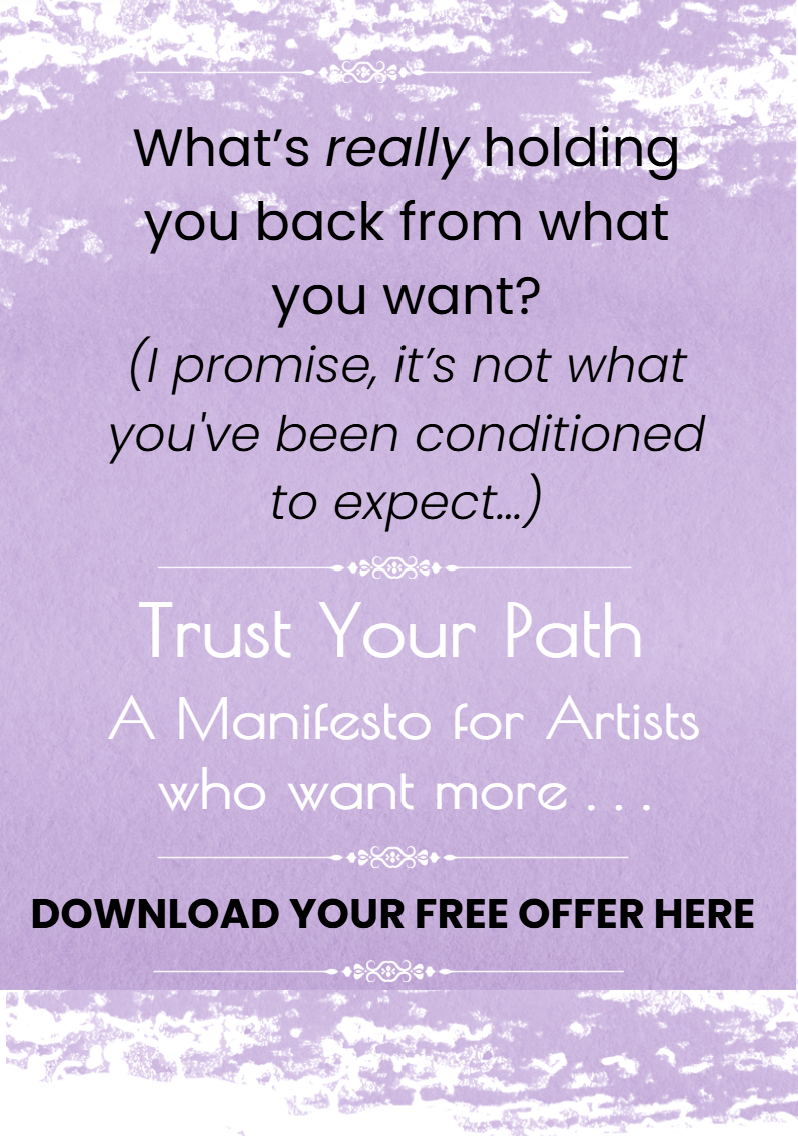Here’s what we know: about half of Americans consider themselves artistic and creative, so selling art online is a dream for a whole lot people. However, even as the art market has become more and more competitive, a significant number of creators rarely know where to begin.
Luckily, there are some fundamental, and actionable, steps you can take to grow the business side of your art career so you can sell art online. Check out the following three, commonsense recommendations.
No. 1: Only Your Best Work
A simple, yet profound truth: Every artist is unique, and the work they create is irreplaceable. However, even the best artists’ work is a mix of practice pieces, pieces that don’t work at all, and pieces that fulfill the artist’s vision. When it comes to selling art online, it’s critical to know the difference and select those top pieces that represent your talent at its best.
Whether you are an emerging, mid-career, or established artist, you want to showcase only the work that defines you; the work with your unique, artistic fingerprint.
Which pieces are most compelling for you?
Think about those, then check in and ask a handful of people you trust for their most honest responses. Chances are high that people who buy your genre of art online will find these pieces equally appealing.
Be careful that you focus on pieces with a consistent artistic fingerprint that identifies you, and only you, as the artist. Jumping around with multiple mediums to discover where your artistic passion truly lies, is perfect when you are in the experimental stage of your art business.
But once you have moved into the emerging artist stage, and you are ready to sell art online, make sure you have identified the medium and style that immediately tells your online art buyers that this is your best work.
No. 2: Sell Your Art on Multiple Platforms
You can explore the various websites designed for artists who are launching an art business. Or, you can create your own webpage and develop different strategies to market your work.
Set up an Instagram, Tumblr, and TikTok page to display your work. Think about who might buy your kind of art. If it’s landscapes, maybe businesses with outdoor sports. If it’s lyrical and abstract, maybe interior designers. Then, be sure to follow those people on social media, and use appropriate tags to reach the ones who might be most interested.
Another option for selling your art would be easily searchable, well-known platforms like Etsy and Redbubble. Millions of people like to peruse these websites, and your artwork will automatically go under predetermined search words so it’s easy for people to find them.
No. 3: Price Your Artwork Competitively
While many artists, along with their loved ones, consider their art priceless, it’s important to pay attention to the market. No matter how established you may eventually be, with a fan club of art lovers, at any art career stage your prices need to be in line with your art career level. That means setting prices for your art that people will actually be willing to pay to a beginner.
Research what other emerging, mid-career, or established artists, who work with your medium and at your scale, are charging. Look across multiple sales platforms and social media sites to give you a well-rounded view of average market prices so you can set competitive rates.
When You Are Ready, Start Selling Art Online the Right Way
With these three foundational recommendations, you can turn your creative dreams into a selling-art-online reality: Only your best work, Sell on multiple platforms, and Price your artwork competitively.
Ariane Goodwin, Ph.D. is an artist ally who leans into the mantra of Truth, Power, and Art when working with emerging, mid-career, and established artists. She has several options to help artists accelerate the business side of their art careers. Download her Writing the Artist Statement eBook and Ambitious Bundle so you can take action and keep your eye on fulfilling your artistic dream.









